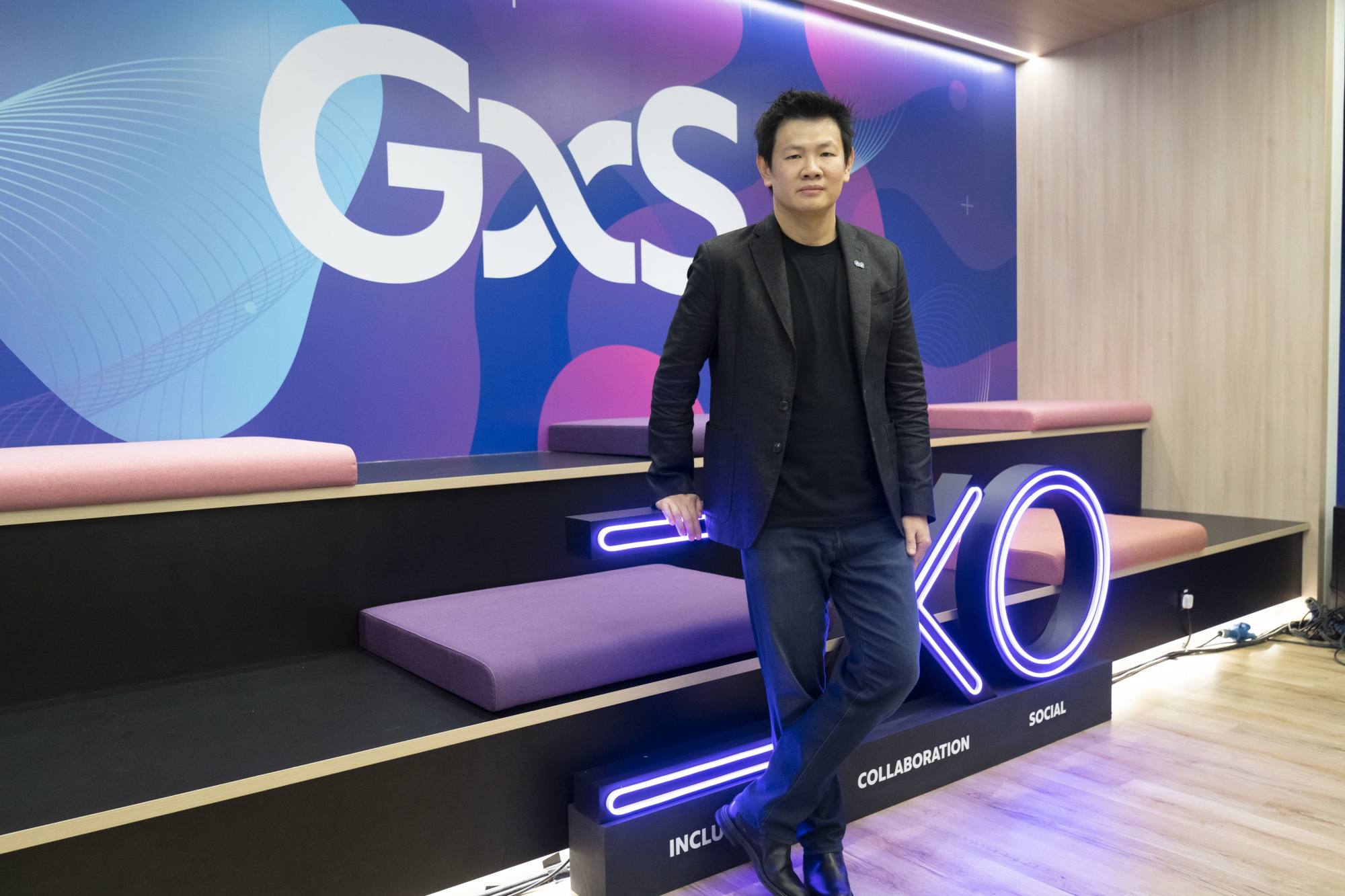
Will Singapore’s new digital banks like GXS and Trust be a ‘game-changer’? Experts aren’t so sure
- A wave of new virtual banks backed by the likes of tech giant Grab and legacy lender Standard Chartered are launching in the city state
- Analysts caution they face challenges carving out a niche in such a saturated market – and say Malaysia may offer greater ‘potential for success’
Many had hoped the development could help inject new life into an industry long dominated by big legacy players, but observers say the launch of the city state’s first digital banks has proved a tad underwhelming.
Lawrence Loh, a business professor at the National University of Singapore, said he didn’t think the new banks would prove to “be a game-changer” as “what they are offering will not tip the balance”. “They are not revolutionary products that people do not already have access to … It’s a little attractive but I think it’s insufficient,” he said.

Analysts, including Loh, expected more from digital banks if they are serious about taking market share away from traditional lenders like DBS and OCBC – and say Singapore’s experience offers lessons for other digital hopefuls in the region.
GXS Bank – a consortium comprising ride-hailing firm Grab and telecoms company Singtel – unveiled its virtual offering late last month, with CEO Charles Wong saying it was designed to “support the needs of entrepreneurs, gig economy workers” and early-career professionals.
Among the key features GXS offers are a “Saving Pockets” function designed to help customers save for specific goals, and offering an annualised interest rate of 1.58 per cent.
Singapore sticks to digital bank plans despite China, US clampdowns
Hot on its heels came Trust Bank – a joint venture between Standard Chartered and Singapore supermarket chain FairPrice Group – which launched a day afterwards offering savings accounts, credit cards and insurance products targeted towards working families.
CEO Dwaipayan Sadhu said the new bank hoped to tap into FairPrice Group’s ecosystem of supermarkets and food centres, which serve about 1 million customers every day.
Expensive giveaways to lure in customers
The new banks have managed to drum up some excitement by offering new customers bonuses and rewards, but Zennon Kapron, director of fintech research and consulting firm Kapronasia, questioned how long this could be maintained.
One-off bonuses, such as the S$10 (US$7) supermarket vouchers being given out by Trust, represent a huge overhead cost for the new banks and are not viable as a long-term strategy.
“Realistically, how much groceries do you really need? The rewards are not very aspirational,” Kapron said. “If I have a credit card that gives me airline miles, I can get excited about future travels. It’s difficult to get excited about future groceries.”

Antonio Fatas, an economics professor at international business school INSEAD, said it was unclear if the new banks would be able to compete with Singapore’s traditional lenders, which already have digital offerings.
“Of course, [the new players] can be better at technology or at developing new products but the same is true for the current banks,” he said.
Kapron said legacy players had also shown willingness to drop fees and improve their services, making it tougher for fresh entrants to compete.
United Overseas Bank, for instance, now offers an account earning up to 3.6 per cent interest if the holder also spends on an eligible credit card, while some OCBC customers have been offered 4.05 per cent.
Ant’s digital banking service in Singapore to serve firms doing cross-trades
Fatas said it made sense for the digital banks to focus on specific market segments in such a saturated and well-banked market as Singapore’s – though getting the so-called unbanked population on board could prove difficult.
“Unbanked individuals are not using banks for many reasons and I am not sure if the new banks will address all those issues,” he said. “And even if they do, it might not be very profitable for the banks.”
Digital banks need to differentiate themselves to attract customers away from traditional lenders, said Seah Li Yun, Asean banking and capital markets leader at professional services giant EY.
“How customers view these new digital banks’ offerings and whether they are ready to establish a broader and longer-term banking relationship will come from their experience going forward, ranging from the stability of the systems, accessibility of banking facilities, and their account opening experience,” she said.
There’s too many financial institutions chasing after too little funds now so I think eventually some will be weeded out
Seah said it was important for the newly launched banks to build trust among customers by ensuring data privacy, minimal service disruptions and compliance with regulatory requirements to avoid negative publicity.
They could also carve out an advantage by exploiting cross-platform interactions. An example of this would be Sea Group – which was also granted a digital banking licence but has yet to unveil its plans – tapping into its game-developer subsidiary Garena to target the gaming community, said business professor Loh, who also heads the NUS Centre for Governance and Sustainability.
Kapron suggested that the new digital banks could target sectors not well served by traditional lenders, such as small and medium-sized enterprises.
“Singapore’s SMEs often struggle to access cost-effective financial products and services,” he said, pointing to traditional lenders’ minimum-balance requirements and high lending criteria.
Malaysia’s central bank raises key rate again over inflation risks
For Loh, Singapore’s digital banking sector is still in a “state of flux” and some of the new players could eventually be forced out if they succumb to high operating costs and low profit margins.
“There’s too many financial institutions chasing after too little funds now so I think eventually some will be weeded out. It’s survival of the fittest,” he said. “No company is too big to fail.”
Loh said Malaysia’s “deep hinterland” offered a much larger potential pool of customers – though they may not be as financially or digitally literate as their peers in the city state.
“Financial literacy, IT literacy and tech advancements must move together,” he said. “If all three do so, the potential for success will be very high.”

